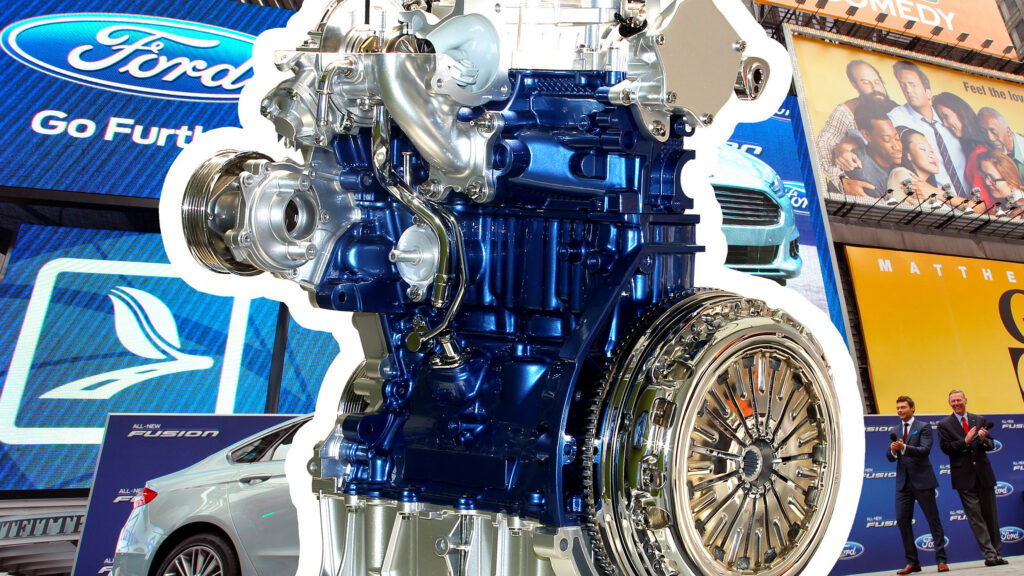The Lawsuit

The word on the street is that Ford is caught up in a legal battle with some owners of its vehicles from 2013 through 2019. These folks, who have gotten behind the wheel of cars fitted with Ford’s small EcoBoost engines, claim they’ve been sold a faulty product. The engines in question are the ones with displacements from 1.5 to 2.0 liters, and the allegations revolve around Ford’s supposed knowledge of a defect.
What’s the Issue?

The complaint isn’t just hot air. Owners of the Ford Escape (2013-2019), Fusion (2013-2019), Edge (2015-2018), Lincoln MKC (2016-2019), and Lincoln MKZ (2016-2019) are alleging that these engines allow coolant to sneak into the cylinders. That coolant’s got no place in there, and as it runs low, the engine risks overheating, which is a one-way ticket to serious engine damage—or worse, if it happens while you’re cruising down the highway.
Ford’s Response
According to the plaintiffs, Ford hasn’t done enough to fix the problem. Instead of diving deep and fixing what they say is the heart of the issue, Ford’s been accused of patching things up with what might be called mere Band-Aid fixes. Imagine getting a ping from a newly installed coolant sensor reminding you to top up, rather than having an engine that doesn’t leak in the first place. In 2020, there was a technical service bulletin issued to replace the short block and head gasket for problems like these in some Ford Fusions and Escapes, pointing to Ford being somewhat aware of the issue.
Driving Feel
Setting the courtroom drama aside, these EcoBoost engines typically provide a lively driving experience. The turbocharged setup offers a spirited throttle response, which makes them feel punchy for smaller engines. Compared to a more traditional V6, these engines might lack a bit of the smoothness, but they usually make up for it with efficiency and a snappy pull when you hit the gas. However, the shroud of mechanical troubles might put a damper on that experience.
Comparisons
In terms of driving feel, these engines often get compared to turbocharged engines from Japanese automakers, like those found in some Honda models. The Ford might feel a tad more robust off the line thanks to its turbo setup, but when efficiency and reliability factor in, it might be a bit of a toss-up, especially given the legal claims against Ford.
Conclusion
If the allegations prove true, it suggests Ford knew there was a storm brewing under the hood but failed to notify the folks relying on these cars. An outcome of the case could set a new precedent, not just for Ford, but for automakers in general when it comes to transparency and engine integrity. As always, keeping an eye on that temperature gauge and coolant level remains critical to keeping these engines—and the adventures they afford—running smoothly.
Supra's Bold New Era
Volvette: Power Wagon
Lambo's Parking Twist
Car Market Slump
Bronco Buying Bungle